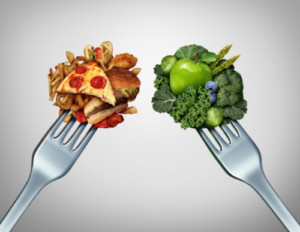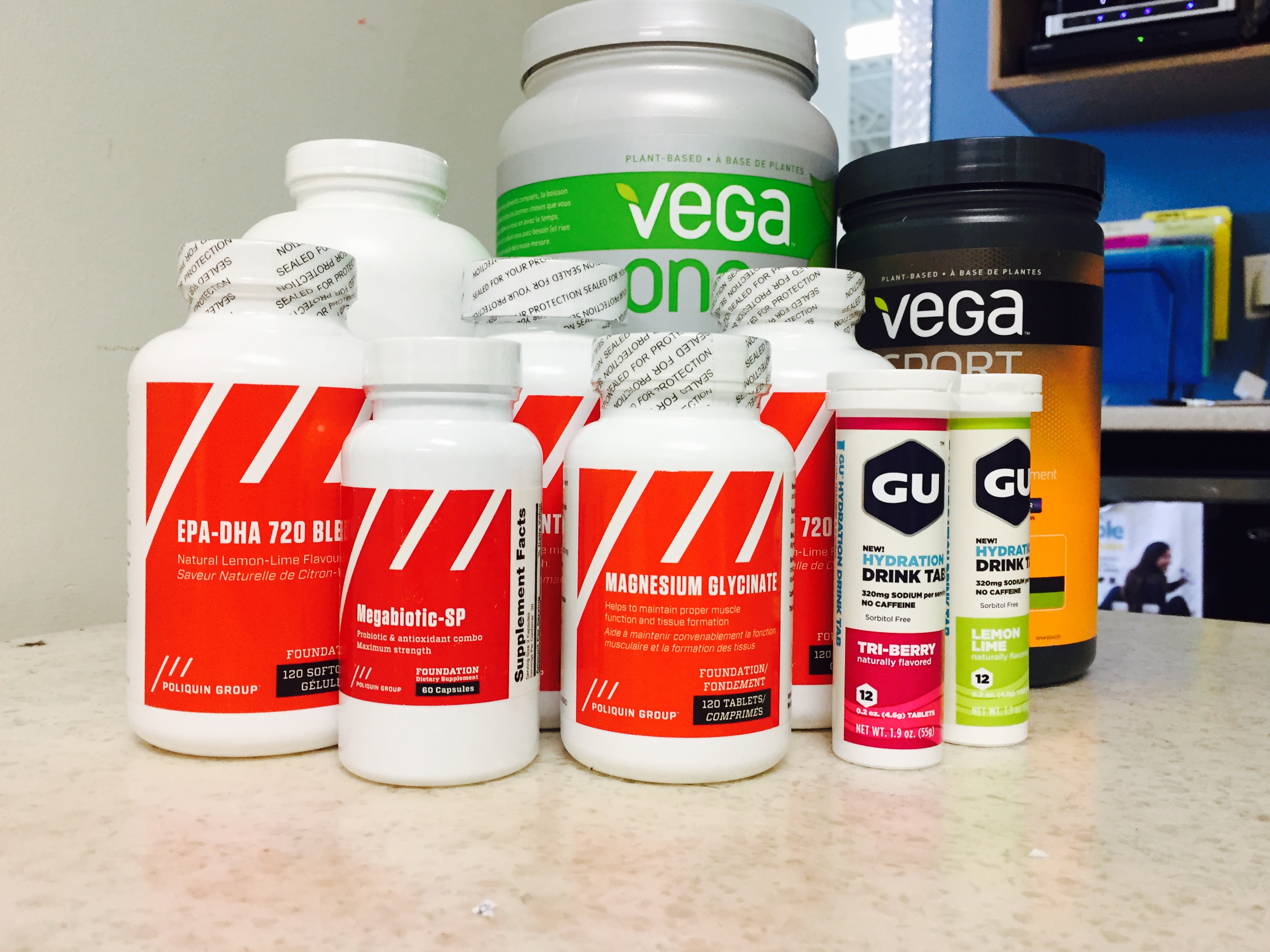Alright, you’ve been eating lots of protein, good carbohydrates and ample amounts of healthy fats but you aren’t seeing any more results. Congratulations, you’ve passed the beginner stage! Now that you know the basics of macronutrients, it’s time to dig a little deeper and learn more advanced techniques towards nutrition.
You’ve probably heard the popular saying “have a protein shake after a workout”, but do you know why it’s become a common phrase in the health and fitness industry? Does the time you eat certain foods really matter? Well, scientifically speaking, it actually does so let me break it down for you.
What is nutrient timing? Essentially, it’s a strategy on timing when to eat different macronutrients depending on the body’s current needs. The most important and effective nutrient timing strategy is knowing when to eat carbohydrates and proteins.
**Disclaimer** For the sake of this article, I am assuming your goal is to lose weight and get generally fit. If you are a competitive athlete or already fairly fit, some of these guidelines would be different depending on your goals (especially for carbohydrate intake).
When to eat protein?
Since proteins play such an important role in our metabolism, it is important to eat protein sources throughout the day. Every meal should contain high quality protein to ensure no deficiencies and proper metabolism function. An added bonus is that eating protein makes you feel fuller for longer periods of time thus resulting in less hunger mood swings.
But what about these post workout shakes everyone is talking about? Yes, that “bodybuilding” mentality of having a protein shake is actually a great habit to have. During exercise, we ultimately create micro tears in our muscle tissues due to the stress we impose on them. The body then needs to repair itself and make the tissues more durable for the next workout. This process which is called “protein synthesis”, is what makes us stronger and leaner. Yet, in order to trigger this process, we need proteins in our body. So by eating protein within an hour after a workout, we kickstart the recovery process and refuel the body. Your body will be like a kid in a candy store gobbling up all the protein. As a general rule, aim to ingest 15g of protein for every hour of intense physical activity. This will help you gain lean muscle mass which will increase your metabolism and help you burn more calories in the long run!
The reason protein shakes have become so popular for post workout nutrition is because of their convenience and fast digestion. Now, there is nothing wrong with rushing out the door with your protein shake in hand, but remember that supplements are designed to help a diet and not replace whole foods. If you have time after a workout to have a whole food meal with a quality source of protein then take advantage of it!
When to eat carbohydrates?
I am willing to bet you’ve probably seen some crazy fit person indulging in pizza or fries and asked yourself “how can they be eating that and still look that good?!?!”. Well firstly, that’s probably their only junk meal of the week and you so happen to see them. Secondly they’ve probably got their nutrient timing down to a tee and know exactly when to eat their carbohydrates. So how do these lean people beat the system with their carb intake? Let me explain.
As a general rule, you should be consuming vegetables and legumes (these have carbs remember!) at every meal of the day. This will ensure that your body has enough energy to fuel itself for daily activities. But you already knew that… so this is where it gets tricky.
There is one exception to the rule. Since the body is in dire need of refuelling after an intense physical activity (60 mins or longer of sweating), the best time to consume higher amounts of carbohydrates is after a workout. Therefore, if you are going to eat any higher glycemic index foods (potatoes, rice, bread, pasta..), you should be consuming them after a workout. During this time, insulin sensitivity is at it’s highest and glucose uptake is fast. Therefore the body will utilize these carbohydrates to replenish its glucose stores and wont store them as fat. The ideal window is 30-90 minutes after a workout. However studies show that even after a few hours, the body’s metabolism is still revving high from the workout which is also known as the “after-burn”. Therefore, you can still take advantage of eating higher carbohydrates later in the day if you’ve done some intense physical activity earlier.
I know it’s hard to avoid starchy carbs, I’ve been there and I still eat them too! So I don’t want you to think that all you can eat for carbohydrates are legumes and vegetables. What I’m trying to say it that you need to earn those carbohydrates. So the rule is; if you need to eat starchier carbs, try and make sure you are consuming them after a workout, ideally within 2 hours. Therefore, you need to plan your eating according to your day. If you plan on having a sandwich or spaghetti that day, try having it after a workout. If you know you’re not exercising, try as much as possible to avoid eating higher processed or starchy carbs.
******No exercise = No “Carbs” (other than fruits and veggies)******
Click on the link below to get a chart that demonstrate carbohydrate timing.
When to eat fats?
Ideally, you should aim to eat fats at every meal which was covered in the previous article “Macronutrient 3: Fats”. Yet, there are times of the day when you may want to lower your fat intake. Since fats are the most dense macronutrient, they are the hardest and slowest to digest. Therefore, eating a handful of nuts prior to an intense workout may actually decrease your performance. When we exercise, the body’s focus is to direct blood and oxygen to the muscles in need so it doesn’t have time to focus on digesting whatever is in your stomach. Thus, if you don’t want to feel nauseous during a workout, I’d say it’s best to avoid eating a high fat meal 1 hour or less before your workout. Furthermore, a higher fat post-workout meal can slow down protein and carbohydrate digestion which is necessary for recovery. That being said, it’s best to get your dietary fat intake during other times of the day rather than immediately after your workout. Keep in mind, I am not saying to avoid fats, just minimize your intake shortly after exercise.
If you’re still having difficulty understanding nutrient timing, think of yourself as a car; after a workout your gas tank is empty thus you need to fill it back up. You need to ensure you supply it with a proper protein intake to help the muscle rebuilding process and carbohydrates to replenish glucose stores. So technically speaking, if you’re going to cheat, the best time to have a Big Mac would be after a hard workout… but treat your body as if you were a Ferrari! You wouldn’t put anything else but premium fuel in it would you?!?!?
I know this is a lot to take in at first, but if you are able to get your nutrient timing on track, it is a great way to be able to keep eating the foods you love (to a certain extent!) and continue seeing results. Stay tuned for the next instalment which will discuss the importance of hydration and why water should be your number one drink!
P.S. If you’re still confused or wanting help on any of the topics covered in the nutrition 101 series, feel free to contact me via email at paul@purewinnipeg.com
Cheers,
Paul Bissonnette B. Kin, CEP, CSCS, FMSC, Pn1
References
- Andrews, R. (n.d.). All about nutrient timing: does when you eat really matter?. Retrieved from Precision Nutrition: http://www.precisionnutrition.com/all-about-nutrient-timing
- Baechle, T. R. ; Earle, R. W. & National Strength and Conditioning Association. (200). Essentials of strength training and conditioning (3rd ed.). Champaign, IL: Human Kinetics.
- Berardi, J., & Andrews, R. (2015). The Essentials of Sport and Exercise Nutrition Certification Manual (Second ed.). Precision Nutrition Inc.
- McArdle, W., Katch, F., & Katch, V. (2010). Exercise Physiology: Nutrition, Energy, and Human Performance (7 ed.). Philadelphia: Wolters Kluwer: Lippincott Williams & Wilkins.
- Poliquin Group Editorial Staff. (2016, Dec 21). The art & science of timing your carbs. Retrieved from Poliquin Group: http://main.poliquingroup.com/ArticlesMultimedia/Articles/Article/1552/The_Art_Science_of_Timing_Your_Carb_Intake.aspx







